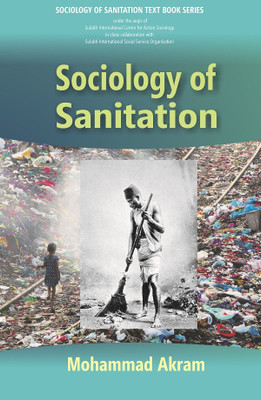Sociology of Sanitation(Paperback, Mohammad Akram)
Quick Overview
Product Price Comparison
About The Book: The book Sociology of Sanitation delineates the conceptual and theoretical formulations necessary for the study of sanitation. It develops some postulates that lead us to the various visible and invisible dimensions of sanitation. It uses data provided by various national and global agencies and presents a paradigm for Sociology of Sanitation. It examines how the sanitation situation prevailing in developing countries is not a replica of the sanitary environment prevailing in the western industrialized countries. Lack of sanitation not only increases the disease burden and cost of healthcare, it decreases the human capabilities causing huge economic loss and social disparity. Denial of appropriate sanitation facility is a denial of aspirations and opportunities related to liberty, equity, freedom and social justice. The worst victims of inadequate sanitation facilities in India are the people belonging to the socioeconomically backward states. The members of socially disadvantaged groups like Scheduled Castes, Scheduled Tribes and Other Backward Classes witness multiple deprivations related to sanitation also. However, irrespective of the caste, class, religion or region, the women and children are the ultimate sufferers. The effort of the present author is to widen t he sociological imaginations related to sanitation by taking into consideration the gaps between the welfare agenda of the democratic countries and the inadequate implementation mechanisms. It conceptualizes the notions of planning deficit, development deficit and contestation deficit and deconstructs the discourses built up on historical, cultural and administrative world views. It is a comprehensive book containing eight chapters which deal with the different dimensions of sanitation related to public health, technology , planning and policy , forms of development, culture and social movements. About The Author: Dr. Mohammad Akram (b. 6 October, 1971) is an Associate Professor and the


